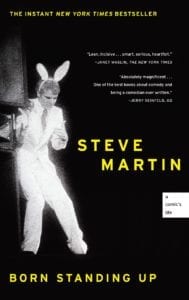Outliers
My Thoughts
During the summer of 2008, I had a really awesome opportunity to play 5 different gigs with the country musician Zac Brown. I’m a violinist and this was right before Zac hit it big time. He had his band at this time, but Zac also loved to play small bars & restaurants around the Atlanta area by himself and whoever else could join. I happened to be in the right place at the right time.
When Zac Brown hit the charts later that year, there was a lot of talk about “Zac, the overnight sensation.” However, when I was playing with Zac, I got to hear from his friends. They told a different story. They told of a Zac Brown who played 300 or so shows a year. Sometimes by himself; oftentimes with his band. He’d been doing that for years.
This is the story of Outliers. The author, Malcolm Gladwell, takes a person or story and first provides the “overnight sensation” side of the story. That’s where most people stop. Gladwell digs deeper and finds that the outliers (a statistical observation that is markedly different in value from the others of the sample) usually got there through a combination of incredibly hard work and luck. We sometimes call this being at the right place at the right time. Gladwell sums it up with:
Outliers are those who have been given opportunities – and who have had the strength and presence of mind to seize them.
Outliers is where the concept of the 10,000 hour rule became wildly popular. This originated in an early-1990s study by psychologist K. Anders Ericsson, but was popularized by this book. The idea is that spending 10,000 hours (or roughly 10 years) of deliberate practice will lead to that person becoming world-class in a given field. Gladwell provides examples like Bill Gates and The Beatles to show how they spent +/- 10,000 hours perfecting their crafts through almost once-in-a-lifetime opportunities.
I bet if you added up all of the gigs that Zac Brown did in the years prior to becoming an “overnight sensation,” you’d also find roughly 10,000 hours of time. I was also fortunate to have played the violin with Zac, but I also started playing the violin at the age of 3. By the time I played with Zac, I likely had closer to 20,000 hours of violin time under my belt. Yeah, I was at the right place at the right time, but I had also honed my craft. (And even with my craft honed, Zac schooled me in Devil Went Down to Georgia. Zac plays the song at double Charlie Daniels speeds and I could not keep up.)
This is a great book for challenging our society’s obsession with the overnight success, the lone entrepreneur, and the new phenomenon. Most of the time, the person’s culture, upbringing, and opportunities had a perfect connection with a crap ton of hard work. It actually enhances a person’s story and makes it more relatable. Overnight sensations and ridiculously talented people are unreachable. Their accomplishments unattainable. But, instead, if they worked super hard, for long hours, and the right opportunity came along, then that can happen a lot more than just for the random outlier. Or, as Gladwell puts it:
The outlier, in the end, is not an outlier at all.
There was one other section of the book that was really fascinating. Do you know why students in the United States have the summers off from school? Gladwell said this harkened back to a time when the school schedule was largely dictated by the farming schedule. Students were needed at home for the harvest season. Gladwell then points to studies showing how students in the US are lagging behind students in other countries. Some of these other countries don’t have a summer vacation. Studies also show that while US students are in school, both affluent and non-affluent students keep pretty even with their abilities. It’s during the summer break when affluent students gain an upper hand by reading through some of the books in their parents library as one example.
I had never thought about the reason behind the summer vacation before and if it was still something that is necessary in this day in age. Once the students graduate, depending on their field, they likely won’t have another summer break during their careers. If studies show that this furthers learning inequality, why aren’t any politicians pushing forward an all-year school schedule?



